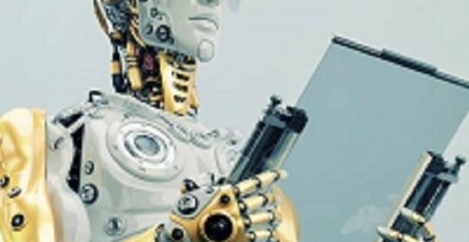September 8, 2017
Economic gains from digitisation, robotics and AI must benefit workers says TUC
 In the same week that Gartner offered some useful insights into the building blocks for a successful digital workplace, the TUC has published its views on the impact of digitisation, arguing that the economic gains from digitisation, robotics and artificial intelligence (AI) should be used to benefit working people. This would include reversing policies to raise the state pension age. The report Shaping Our Digital Future explores how the next technological revolution will impact on jobs and wages. Previous waves of technological change have not led to an overall loss of jobs, but have disrupted the types of job people do. And with the most recent wave of industrial change, rewards from higher productivity have gone predominantly to business owners, rather than being shared across the workforce through better wages and working conditions.
In the same week that Gartner offered some useful insights into the building blocks for a successful digital workplace, the TUC has published its views on the impact of digitisation, arguing that the economic gains from digitisation, robotics and artificial intelligence (AI) should be used to benefit working people. This would include reversing policies to raise the state pension age. The report Shaping Our Digital Future explores how the next technological revolution will impact on jobs and wages. Previous waves of technological change have not led to an overall loss of jobs, but have disrupted the types of job people do. And with the most recent wave of industrial change, rewards from higher productivity have gone predominantly to business owners, rather than being shared across the workforce through better wages and working conditions.
For example, in 1950 almost one in three workers worked in manufacturing, while one in 12 worked in professional and technical services. By 2016 these shares had reversed. But the jobs lost in manufacturing were not replaced by jobs of similar or better quality in the communities affected. Wages in former industrial areas are still 10 percent below the national average.
The TUC says that the government, business and trade unions must work together to mitigate disruption to working people’s lives, and to maximise opportunities for working people to benefit. And with two-thirds of the 2030 workforce already in work today, efforts must focus on ensuring that existing workers are equipped to deal with the change.
Ideas from the report for how the benefits could be shared with workers include:
- Using income gains from higher productivity to stop planned increases in the state pension age, set to affect millions of people in their 40s.
- Giving everyone the right to a mid-life career review, and stepping up the investment in workplace training to the EU average – at present the UK invests just half.
- Giving more workers the opportunity through collective bargaining to gain a share of the economic gains technology brings through wage increases.
TUC General Secretary Frances O’Grady said: “With the UK failing to make productivity gains in the last decade, we need to make the most of the economic opportunities that new technologies are offering. Robots and AI could let us produce more for less, boosting national prosperity. But we need a debate about who benefits from this wealth, and how workers get a fair share.
“We should look on the changes ahead as an opportunity to improve the lives of working people and their families. The government could use the revenue generated to reverse policies to raise the state pension age. And businesses could use productivity gains to improve the pay and conditions of workers.
“Robots are not just terminators. Some of today’s jobs will not survive, but new jobs will be created. We must make sure that tomorrow’s jobs are no worse than today’s. They must provide fulfilling work, with good pay and conditions. And there must be funding to train people for new work if their job is made obsolete.”













